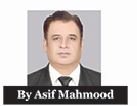PTI is taking to the streets once again. As citizens witness yet another protest, a pressing question looms large: How long will this politics of agitation continue?
Globally, nations are experiencing unprecedented economic growth, while Pakistan’s economy has been ensnared in a cycle of unrest, raising the question of whether the people deserve better from their leadership. It is essential to reflect on the current political scenario and its economic repercussions.
Protests, while often an expression of dissent, can lead to prolonged uncertainty. This uncertainty dissuades investment, both foreign and domestic, crippling economic initiatives that could improve the lives of millions. The average citizen is left to grapple with the consequences: rising inflation, stagnant wages, and a lack of job opportunities. It’s disheartening to see that, while governments in other countries are working to foster environments conducive to growth and stability, Pakistan appears to be at a standstill, hindered by political unrest.
Moreover, there have been alarming reports suggesting that government resources from Khyber Pakhtunkhwa (KP) are being utilized for the PTI’s jalsa in Swabi. If these rumors hold any weight, they deserve serious scrutiny. The use of public resources for political rallies raises significant ethical questions. PTI, as a responsible political entity, must clarify these allegations to uphold its credibility and to maintain trust among its supporters and the general populace. Transparency in governance is critical, especially during a time when the public’s faith in political institutions is waning.
Citizens are grappling with a myriad of problems ranging from basic needs like clean water and electricity to more complex issues such as education and healthcare. Instead of inflaming tensions, the PTI government should be looking to foster dialogue, encourage collaboration, and implement policies that directly benefit the populace. Investing time and resources into constructive governance would undoubtedly yield far better results for the country’s future.
Additionally, the timing of these protests is particularly concerning with the Champions Trophy approaching. The tournament presents an opportunity to showcase Pakistan on an international stage, drawing attention to the nation’s culture, hospitality, and capability to host significant global events. However, any political unrest during this time could undermine these efforts and adversely affect the country’s image.
In an increasingly interconnected world, the perception of a nation can significantly influence investment, tourism, and diplomatic relations. It is crucial for all political players to recognize that their actions today will define the legacy of Pakistan for generations to come. The current political situation demands that all stakeholders—political parties, civil society, and the citizenry—come together to forge a path of stability and prosperity.
Continuous protests will only perpetuate a cycle of dysfunction and division, which does little to address the real challenges that citizens face.
While protests may have a role in democracy, they cannot be the sole means of political engagement.
